Although you might not think so, any artist management contract is just a communication tool. It clarifies to the artist their responsibilities and what you can do for them. It also helps to outline your responsibilities so that you know what you’re getting into from the start.
Table of Contents
What Is Artist Management?

Artist management is the business of managing a band, musician, or performer. A manager’s job is to guide an artist’s career and help them achieve their goals. Artist management guides musicians, bands, and performers through the business side of their careers. A manager acts as the artist’s representative and advisor to help further their success.
The manager handles contract negotiations, schedules performances and tours, oversees publicity and marketing, and coordinates with the artist’s agent, label, and other teams. They ensure the artist is presented with opportunities that align with their goals and vision.
Additionally, the manager often assists with budgeting, maintaining relationships, securing funding for projects, and providing general career direction. This business support allows the artist to focus on the creative aspects. Effective artist management brings business acumen and professional advocacy to maximize an artist’s potential and achieve their ambitions.
The artist-manager relationship is ideally a close partnership based on trust and honest communication. Managers invest in an artist’s long-term development rather than quick fame. They work as strategic advisors guiding the artist’s path to a sustainable, meaningful career.
Artist Management Contract Templates
Arbitration agreement templates are pre-designed legal documents that outline the terms and conditions for resolving disputes through arbitration rather than traditional litigation. These templates provide a framework for parties to establish an agreement on how disputes will be resolved outside of the court system.
Arbitration agreement templates typically include sections that define the scope of the agreement, the rules and procedures to be followed in the arbitration process, the selection of arbitrators, the location of the arbitration, and the governing law. They may also address matters such as confidentiality, costs, and the enforcement of arbitration awards.
Using an arbitration agreement template can save time and effort by providing a starting point for creating a legally binding and comprehensive agreement. These templates can be customized to reflect the specific needs and requirements of the parties involved, ensuring that their interests are adequately protected.
The role of a manager can vary from artist to artist, but it generally includes the following:
Finding work for your client. Call your manager if you’re looking for someone to play at a local venue. They know who in the area is hiring and what kind of money they’re willing to offer. If you’re trying to land a record deal or get booked on tour, they can help with that as well.
Negotiating contracts with venues, promoters, and other parties involved in your client’s career (such as record labels). This involves reviewing contracts, giving feedback on what’s acceptable and what should be changed, and negotiating terms that benefit both parties.
Managing finances — ensuring their money is organized and accounted for so everyone gets paid on time (or at least knows when they won’t be paid).
What is an Artist Management Contract?
An artist management contract is a legal document that outlines the terms of your relationship with your manager. The contract will contain details about what services you can expect from your manager and how much they’ll be paid for those services.
An artist management contract is similar to a record label contract, but there are key differences that make an artist management contract unique. For example, an artist management contract will include details about the payment structure for your manager’s services. It might also outline how many managers you can have at once, who owns any intellectual property created during the relationship, and more.
The professional relationship between an artist and their manager is often called a “management deal.” This means that the two parties have agreed that they will work together somehow (this could be in exchange for money or other compensation). Managers typically work with artists daily, guiding them through all aspects of their career — from booking shows and planning tours to developing branding and creating marketing plans.
Types of artist management contracts
Artist management contracts are generally structured as a form of partnership. The artist and the manager each have a stake in the company and share in the profits made from the artist’s career.
Several types of artist management contracts are available to artists and managers alike. The type of contract you choose will depend on your needs and circumstances.
Here are some common types of artist management contracts:
Short-Term Artist Management Contracts
A short-term artist management contract is most common with new artists who are just starting out. This type of contract will last for a set period of time, such as one year. It’s also familiar with managers with a proven track record of success with other clients. Short-term artist management contracts allow both parties to terminate the agreement at any time before its expiration date if they so choose to do so.
Long-Term Artist Management Contracts
A long-term artist management contract lasts for several years, often up to five years or more. These agreements are used when managers believe that they can help an artist achieve success through their business model and work ethic over time. Long-term deals also require more commitment from both parties and usually include higher compensation for managers because they’re taking on a greater risk by offering longer terms and investing more time into developing artists’ careers.
A long-term artist management contract should include several clauses that outline expectations on both sides. These include:
Artist
Enter your name, address, phone number, and other relevant information about yourself. Also include relevant information about your experience as an artist or musician, if applicable.
Manager
Enter your name, address, phone number, and other relevant information about yourself. Also include any relevant information about your past experience as a manager or record label owner, if applicable.
Territory
The territory is where you will be working together. You can choose national or international, depending on where you want to focus your efforts.
Term
The term is how long you want your agreement to be active. Most artists choose from one to three years. If you’re starting out, go with one year because you can always renew if things are going well.
Commission Rate
Commission rate is the percentage of income your manager will receive as their commission for the services provided. Typically, this ranges from 10% – 20%. This number must be mutually agreed upon by both parties, as it will determine how much money they make from a successful career together.
Commission Term
Commission term refers back to when payments will be made and who is responsible for them (manager or artist). Typically, payment terms are quarterly or semi-annually.
Division of Labor
In this section, you will need to describe how you will divide your responsibilities as a manager. Will you be handling all aspects of marketing and promotion for your client? Or do you expect them to handle some things on their own? It is important to be clear about what role each party will play so that there is no confusion down the road.
Bank Account Information of the Artist
If you will be taking money from the client’s bank account, this section should outline how much money can be withdrawn from their account per month and what their total annual budget is for this purpose. You should also establish where you will deposit funds from their business activities (e.g., concert tickets sold).
Breach of Contract
The Breach of Contract section explains what happens when one party fails to abide by the terms of the agreement. You can use this section as a way to specify when payment is due and how to communicate any changes that may occur over time. If any unforeseen circumstances arise during your working relationship, then you can also use this section to describe what happens in those situations.
Elements of an Artist Management Contracts
A typical artist management contract will include the following essential elements:
Artist Management Services
The contract should clearly specify which services the manager will provide to the artist. This can include everything from booking shows and managing social media accounts to helping with songwriting and marketing strategies.
Term of Agreement
The length of time that the agreement is effective should be clearly stated in the contract. It is important for both parties to know how long they are expected to work together so that they can plan their schedules accordingly.
Compensation
This section of your artist management contract should clearly state how much you will be paid for your services and when you are due payment (e.g., weekly or monthly). If there is a dispute over compensation, it is important that you have a specific time frame on when you agreed upon this rate with your manager so that there is no confusion as to whether or not they were paid correctly by you or if they were late in paying you back for expenses incurred during your tour or other events that were related to your business relationship together like recording sessions, etc.
Territory
This is a very important element of any artist management contract. The territory refers to where the manager has exclusive rights to provide management services for an artist. For example, if an artist lives in New York City but their manager lives in Los Angeles, then one might include a provision that states that this agreement only applies when either party is within 100 miles of New York City or Los Angeles. If they don’t live within this distance, then they wouldn’t be able to provide those services while they are outside of those areas.
Management Fee
The management fee is how an artist manager gets paid for their services. The management fee is often a percentage of gross income (typically one to three percent), although sometimes it can be a flat fee per year or month. The amount of the fee will vary depending on what services the manager provides and whether they are dealing with an established artist or new talent. For example, a new artist may not have enough money to pay any fee at all and would need to be paid out of future income earned from the deal.
Division of Labor
The division of labor between the artist manager and the record label can be something that needs to be negotiated in advance so that both parties know what they’re getting into before signing any contracts. This is especially true if there are multiple managers involved; it’s not uncommon for there to be several people pushing an artist forward at once as opposed to just one person acting as a single point person for everything regarding their career (although there are also examples where multiple managers work together for artists).
Breach Conditions
Breach conditions are actions or behaviors that would be considered a breach of contract. Breach conditions are usually found in the “Disputes” section and in other sections of the agreement.
Breach conditions should be specific to the artist management contract and should account for all possible scenarios that may arise throughout the duration of the contract.
Signature Area
A signature area is typically found at the end of an artist management contract. This is where both parties sign their names and date their signatures, acknowledging that they have read and agreed to all terms outlined in the artist management contract.
What should you know before signing an artist management contract?
A management contract is a legal agreement between you and your artist management company. It outlines the roles and responsibilities of each party in the relationship and protects both parties from future disputes.
Here are some important things to keep in mind before signing an artist management contract:
- Ensure that all clauses are clearly defined and agreed upon by both parties.
- Ensure that the contract covers all aspects of your artist management relationship, including payment terms and how long you’re expected to stay with the company.
- Make sure all personalities involved in the contract understand their roles and responsibilities.
- Be wary of clauses that include hidden fees or any penalties for leaving early (i.e., “termination fees”). These are often designed to prevent you from leaving prematurely, but they can also leave you financially vulnerable if something goes wrong within your management deal with your current company.
Signing an artist management contract is more complex than just filling out a few lines on a piece of paper. Many factors can affect your career’s success or failure if they aren’t taken into consideration beforehand.
FAQs
What should an artist management contract include?
Key elements an artist management contract should include are: Scope of services provided, length of agreement, commission fees and payment terms, intellectual property rights, obligations of both manager and artist, grounds for termination, dispute resolutions, governing laws, signatures showing agreement. A lawyer can ensure proper terms.
What is the average artist management contract?
The average artist management contract has a 10-20% commission fee, 3-5 year initial term, 360 deal structure granting the manager commission on all revenue streams, requirements for the manager to provide services like budgeting, marketing, booking, and rights to the artist’s image and likeness during the term. Contracts are negotiable.
What are the different types of artist management contracts?
Common types of artist management contracts include: Exclusive contracts giving the manager full representation; Co-management contracts dividing representation; Single-project or short term contracts; Online digital distribution focused contracts; Salaried-employee contracts with management firms. Contracts can be tailored to specific needs.
What is a management deal for independent artist?
For unsigned independent artists, a management deal typically involves higher commission fees around 20-30% to account for the manager’s greater workload in developing an unproven artist. Shorter 1-2 year terms are common initially. Non-exclusive deals allowing the artist to still seek other opportunities. More focus on building the artist’s profile and fanbase. Guidance rather than comprehensive services.
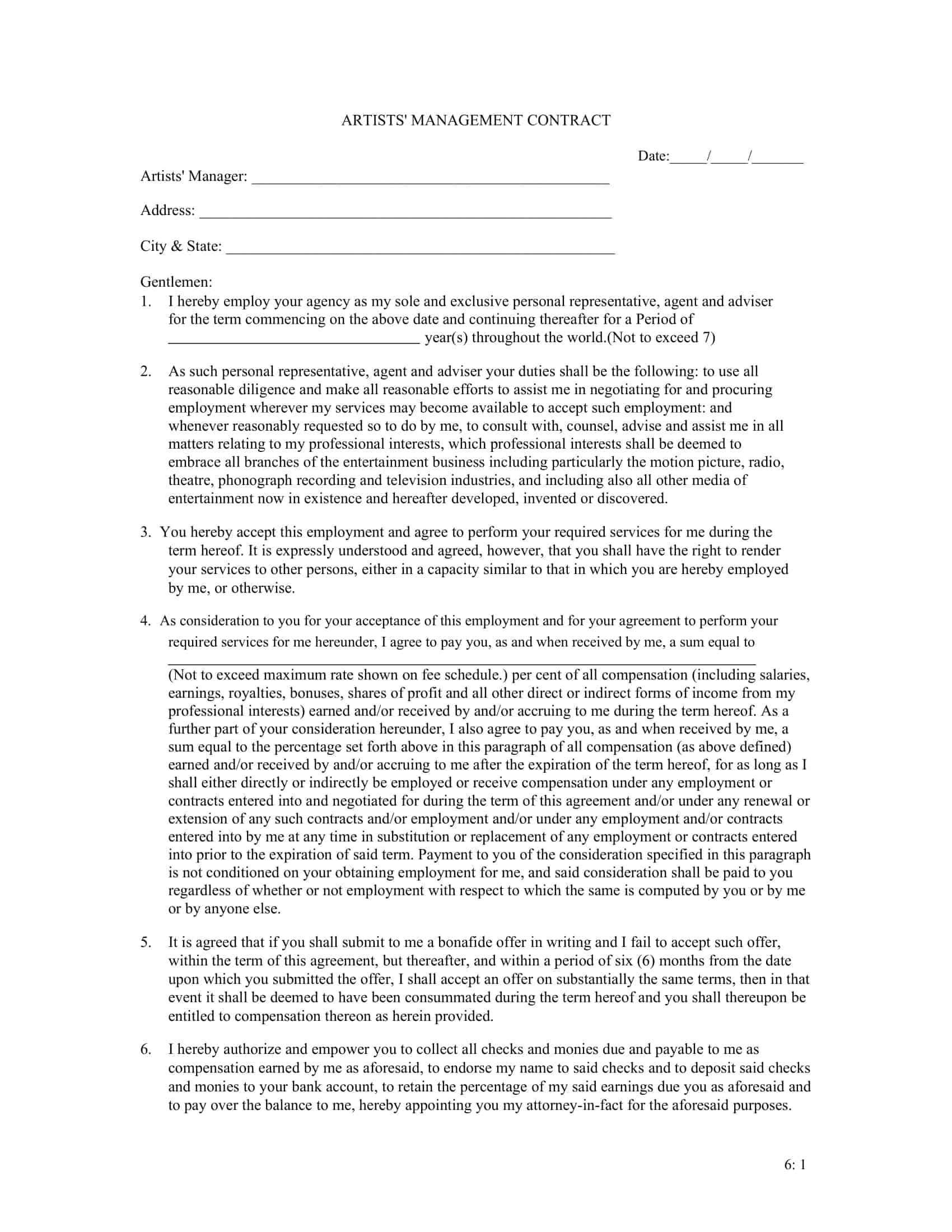

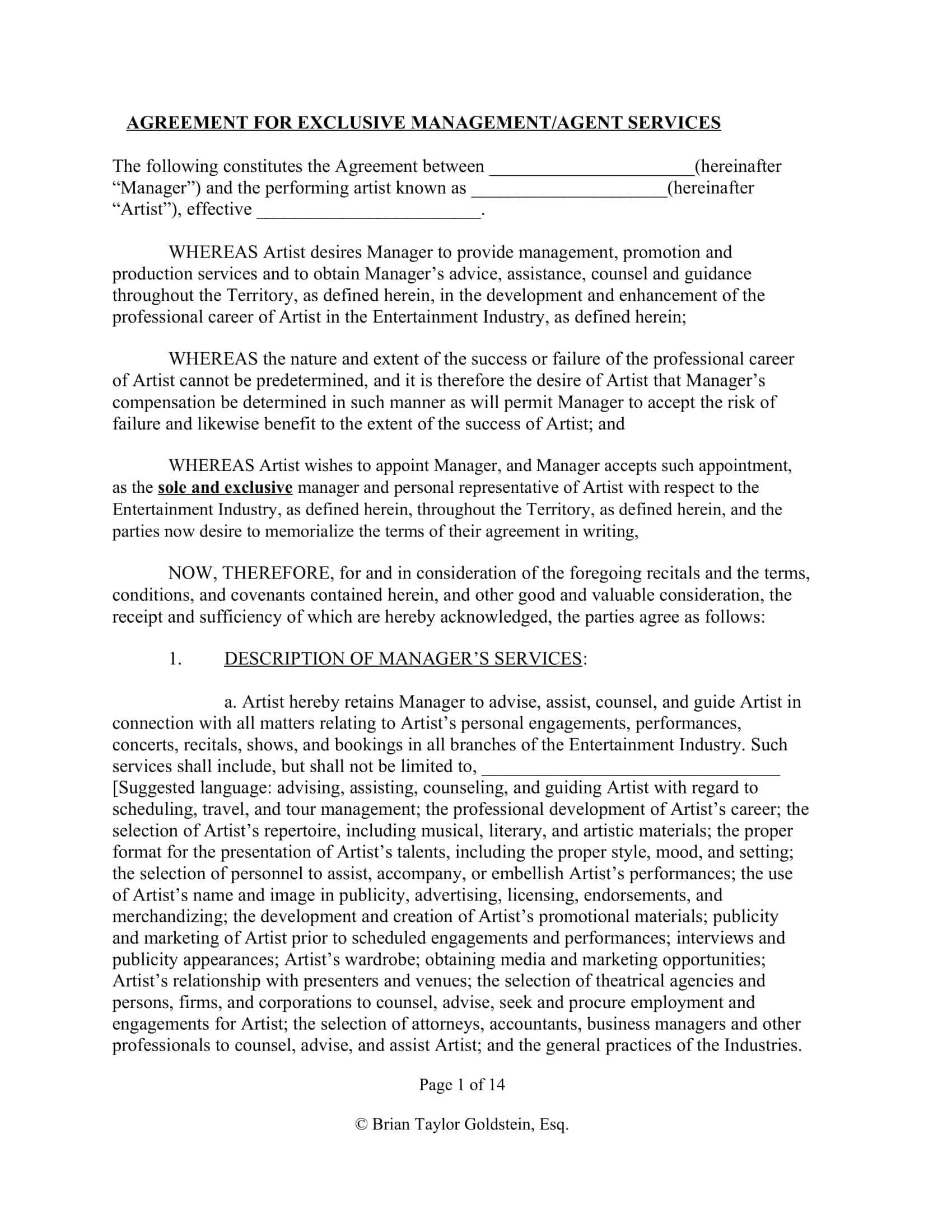

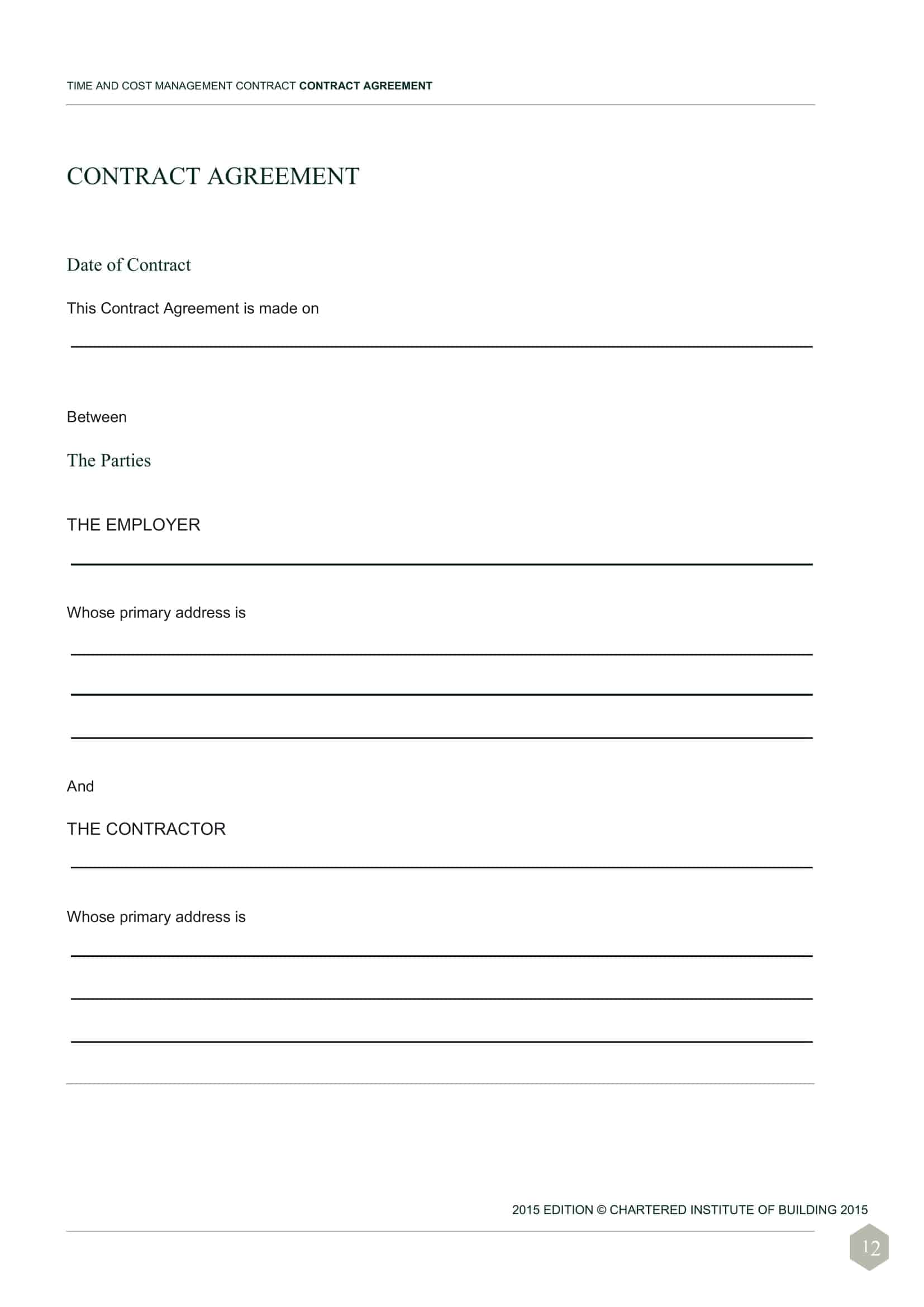

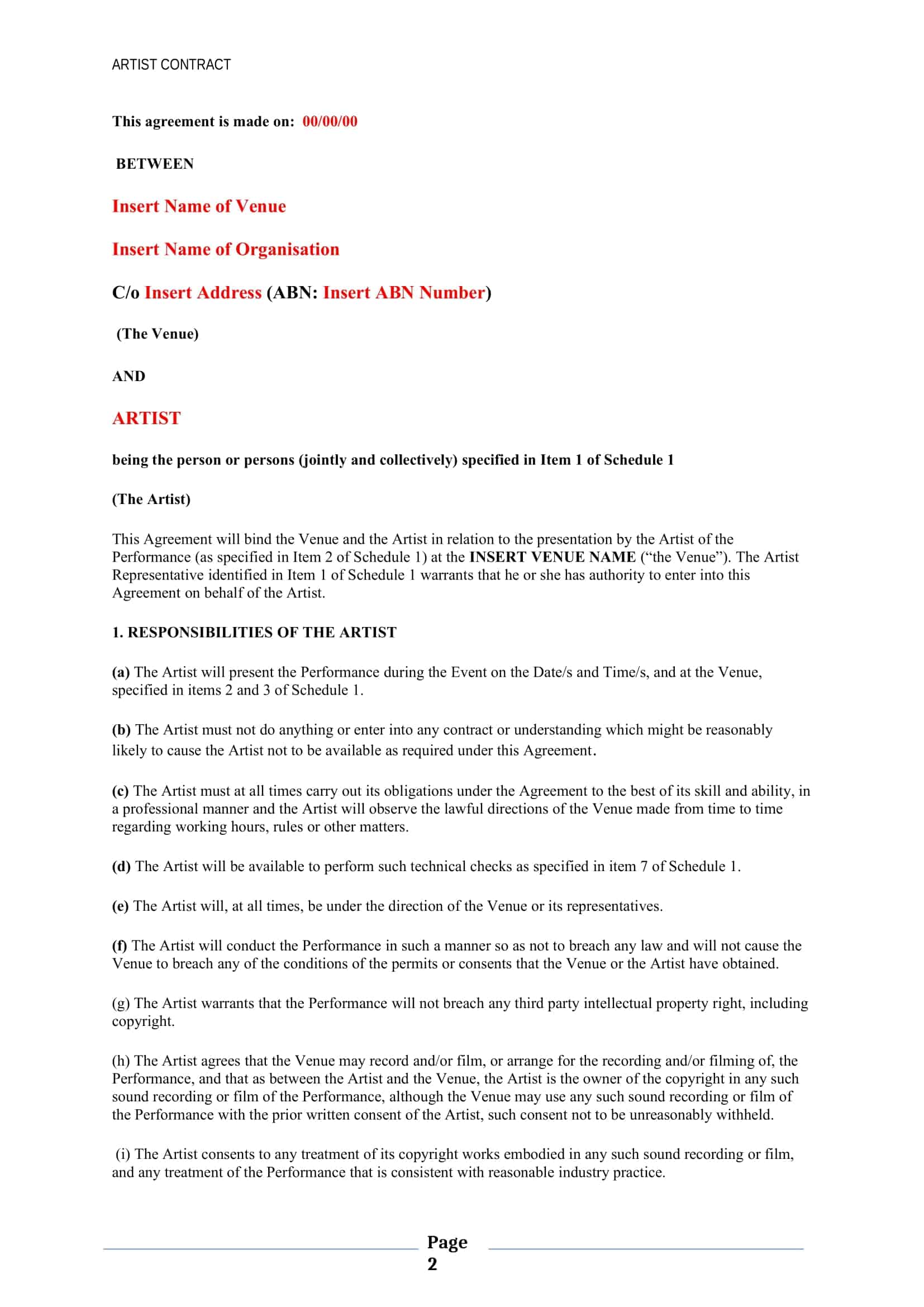
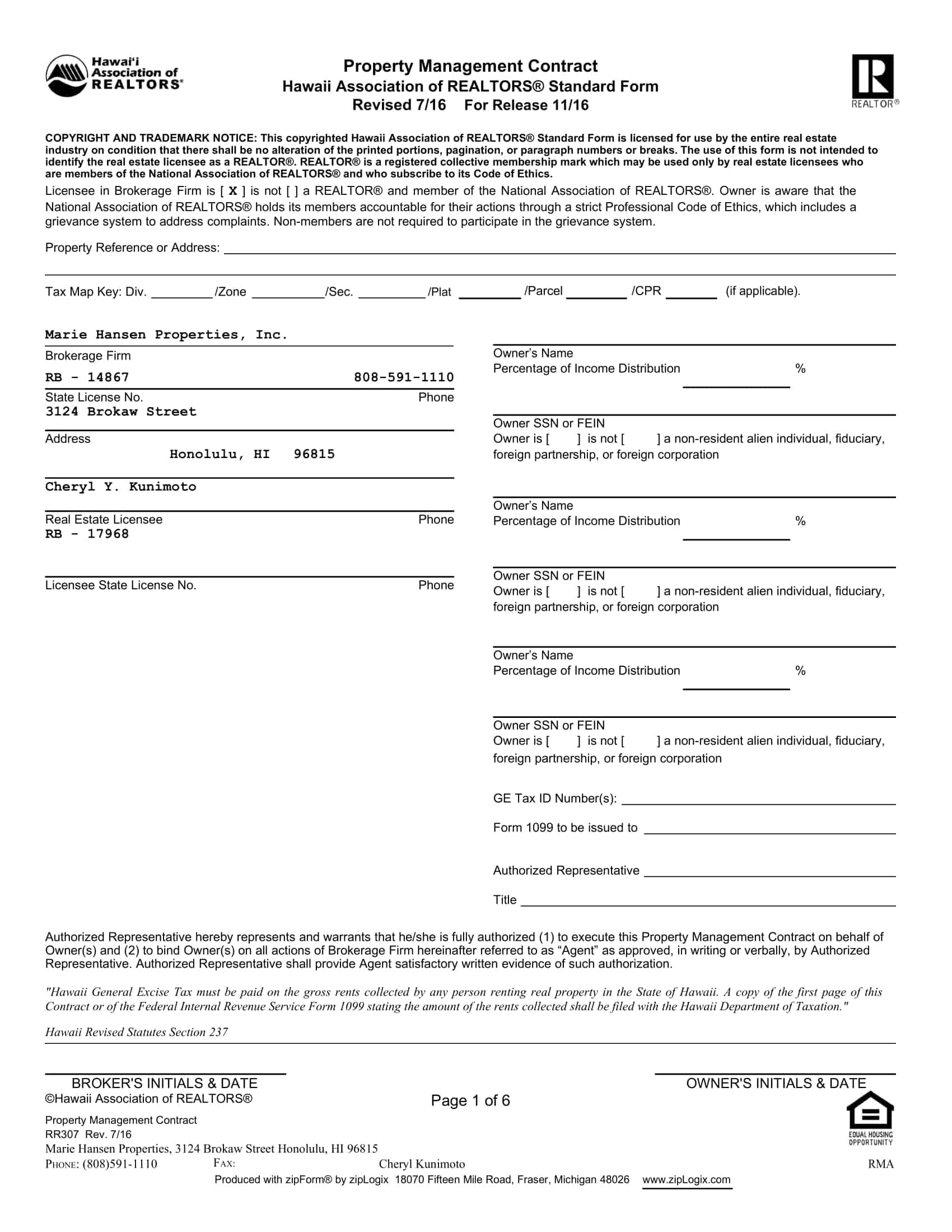
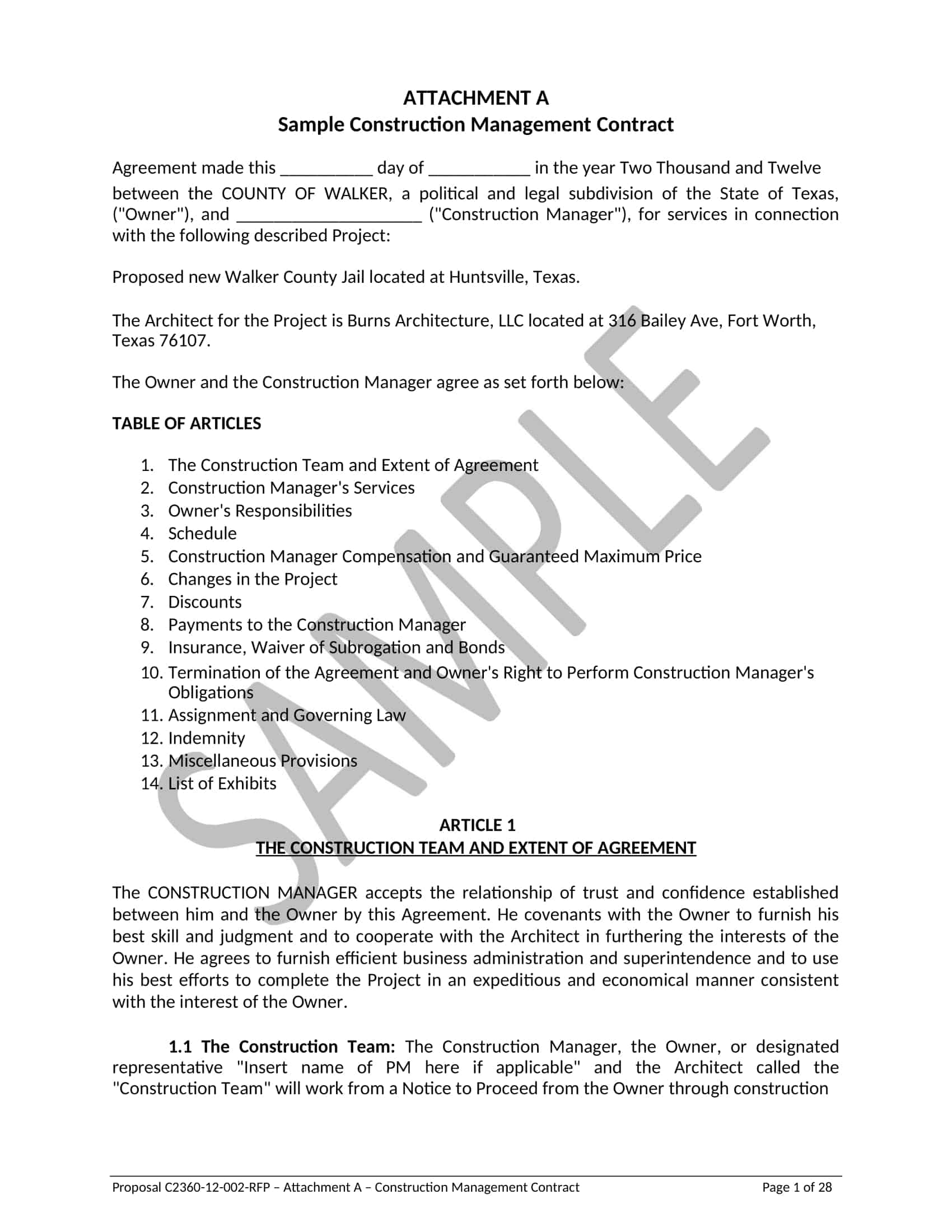




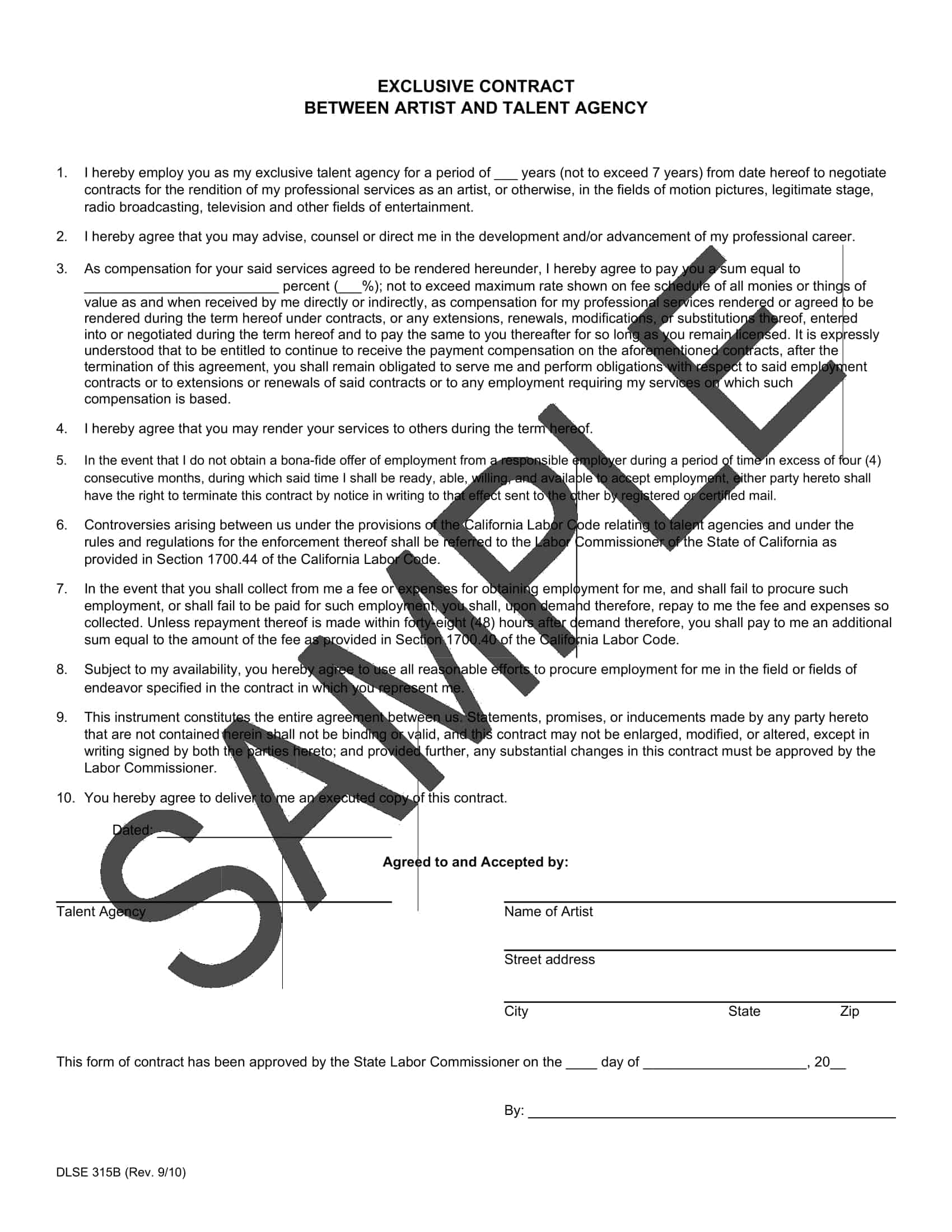
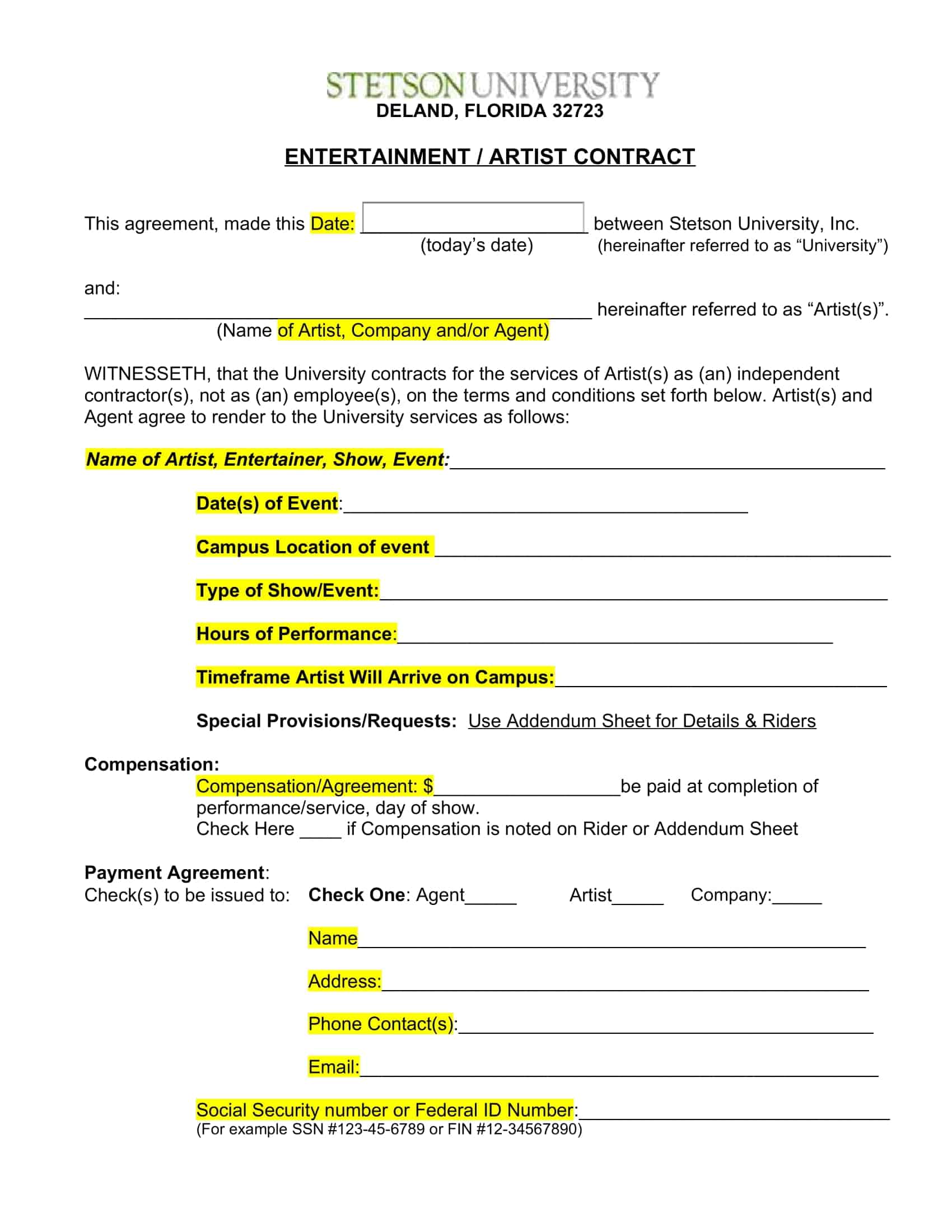



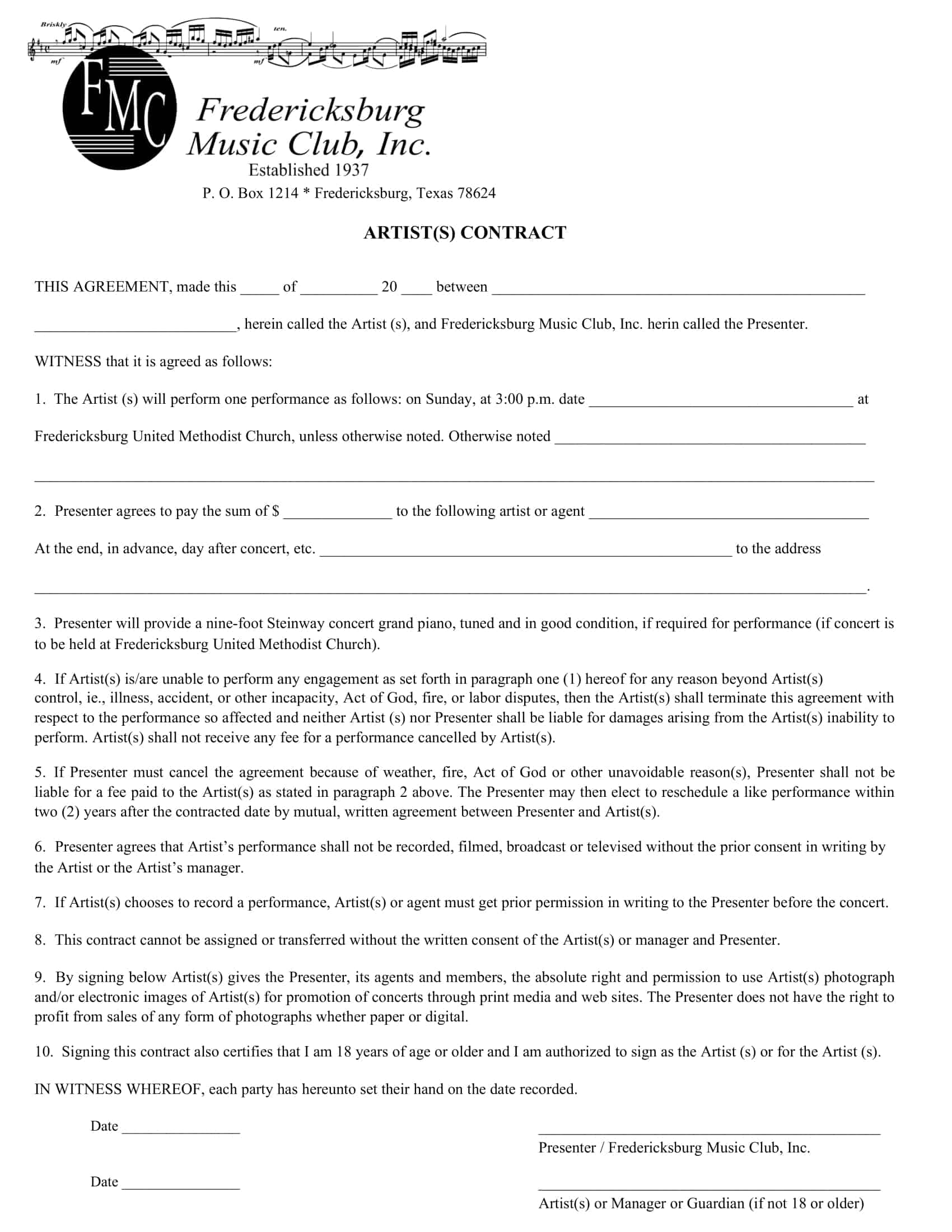
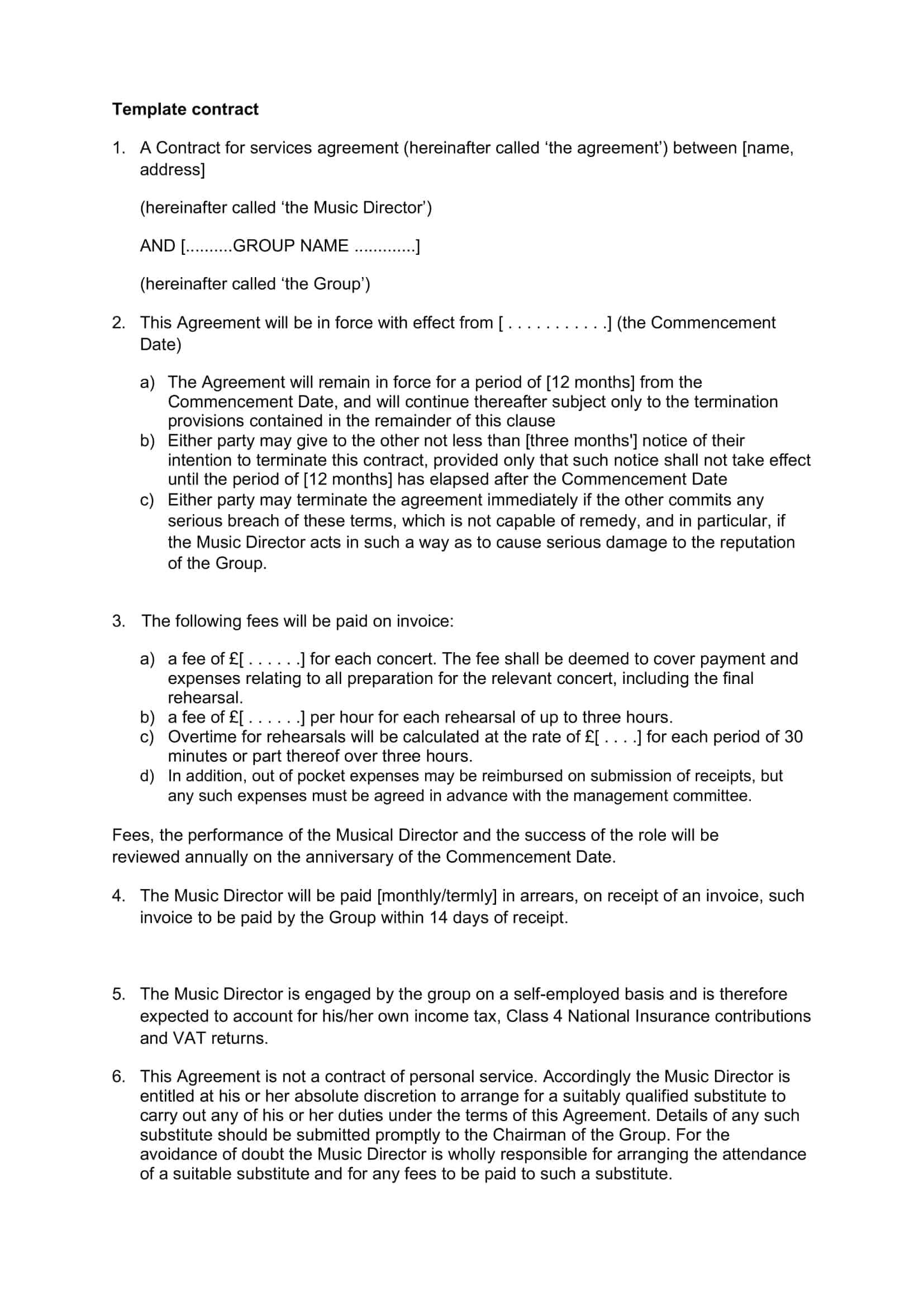
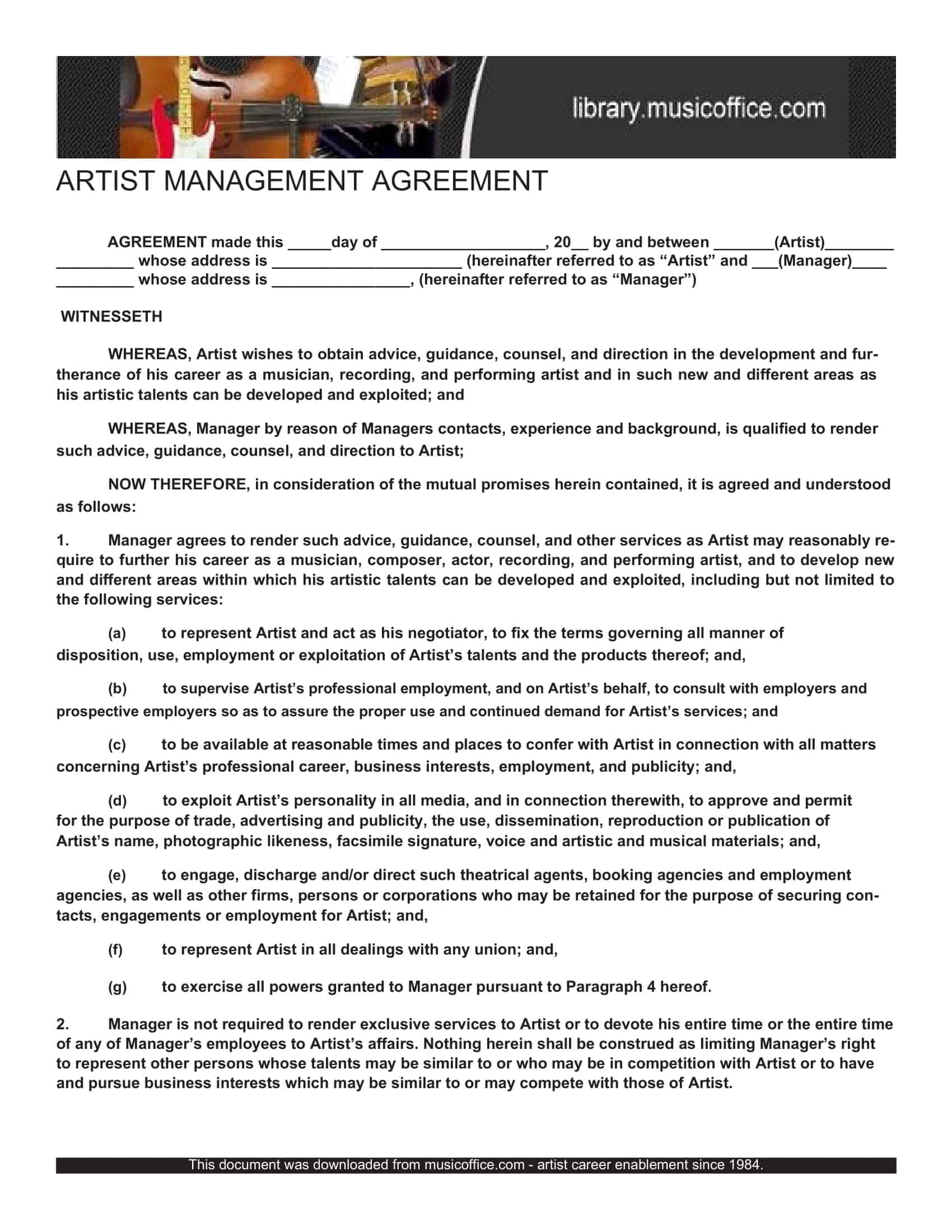
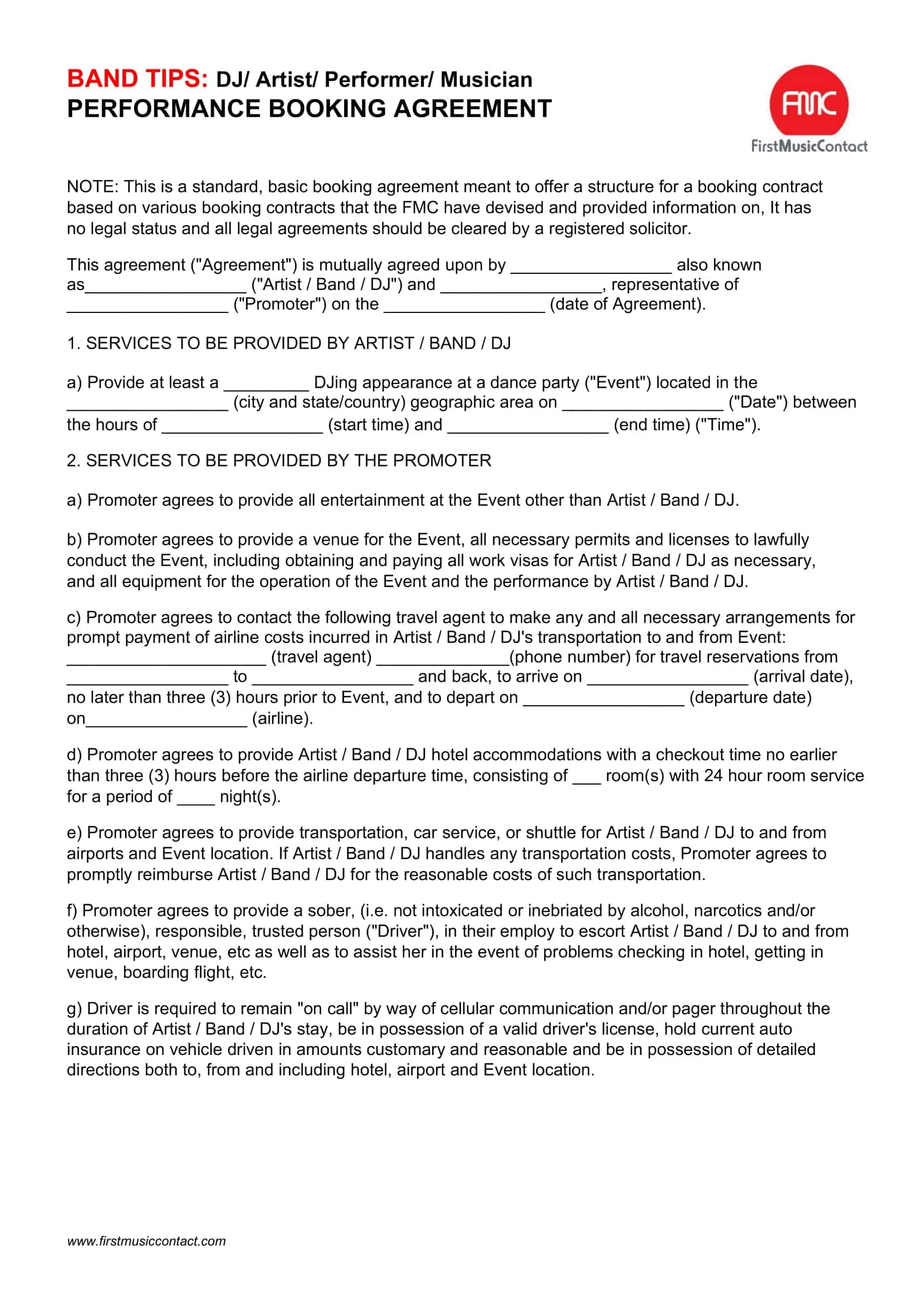







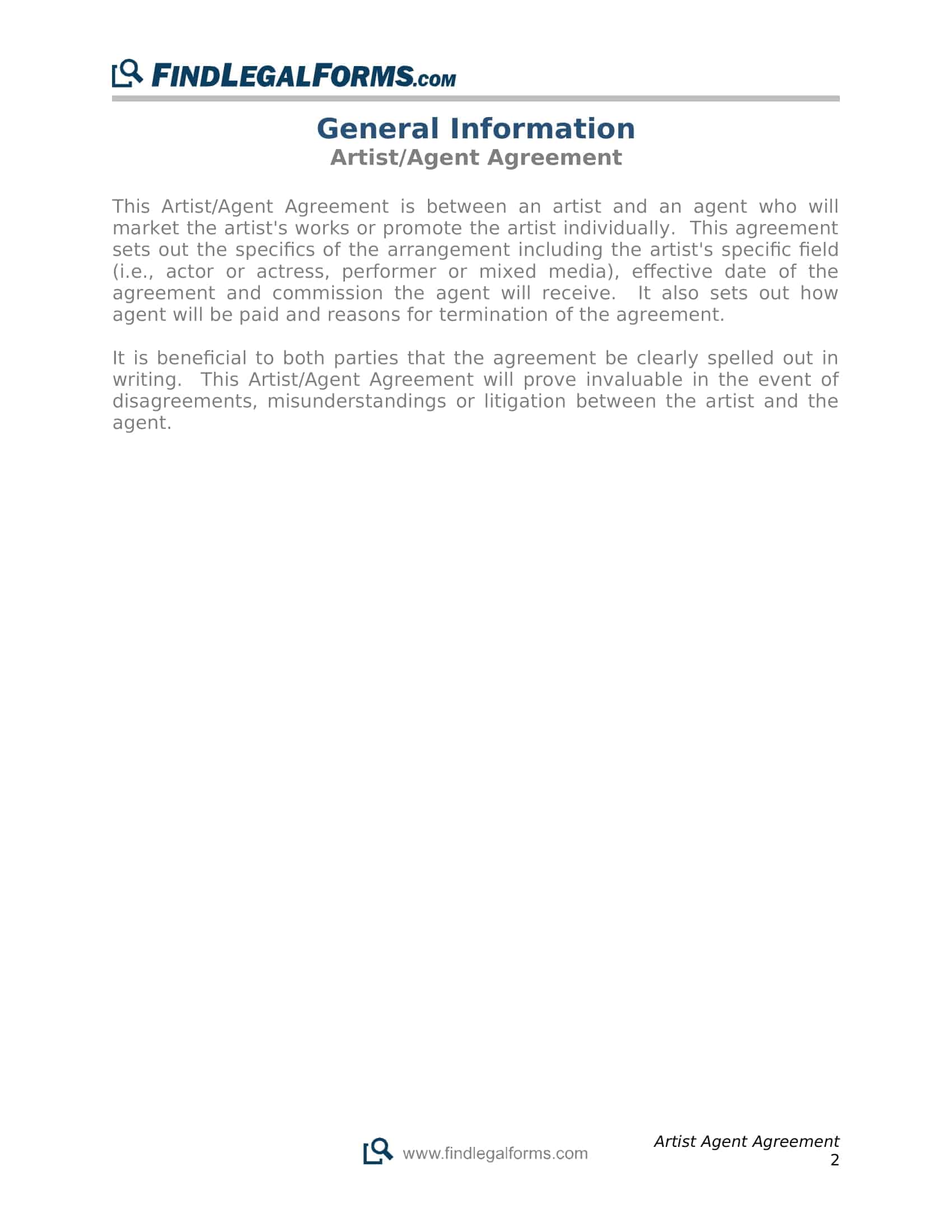
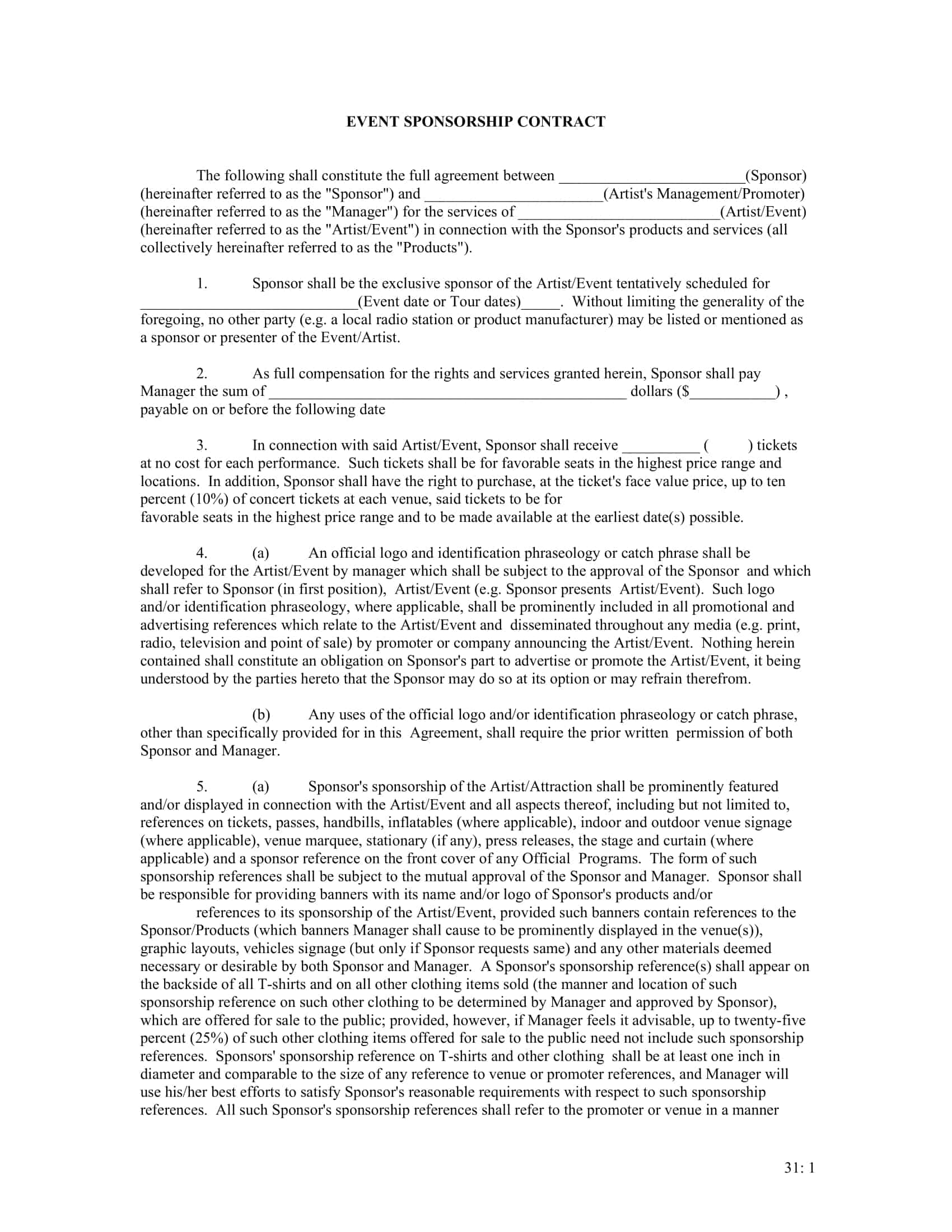

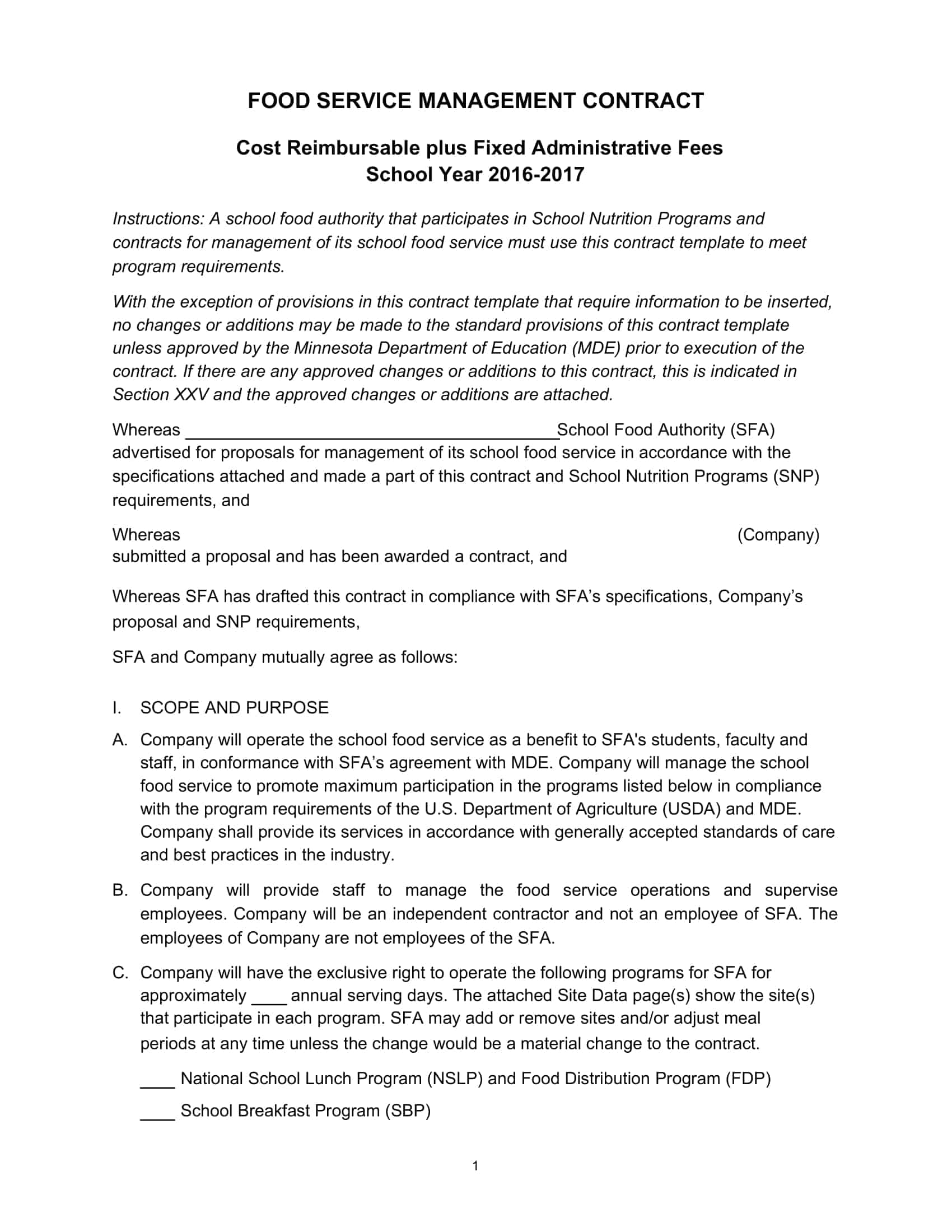
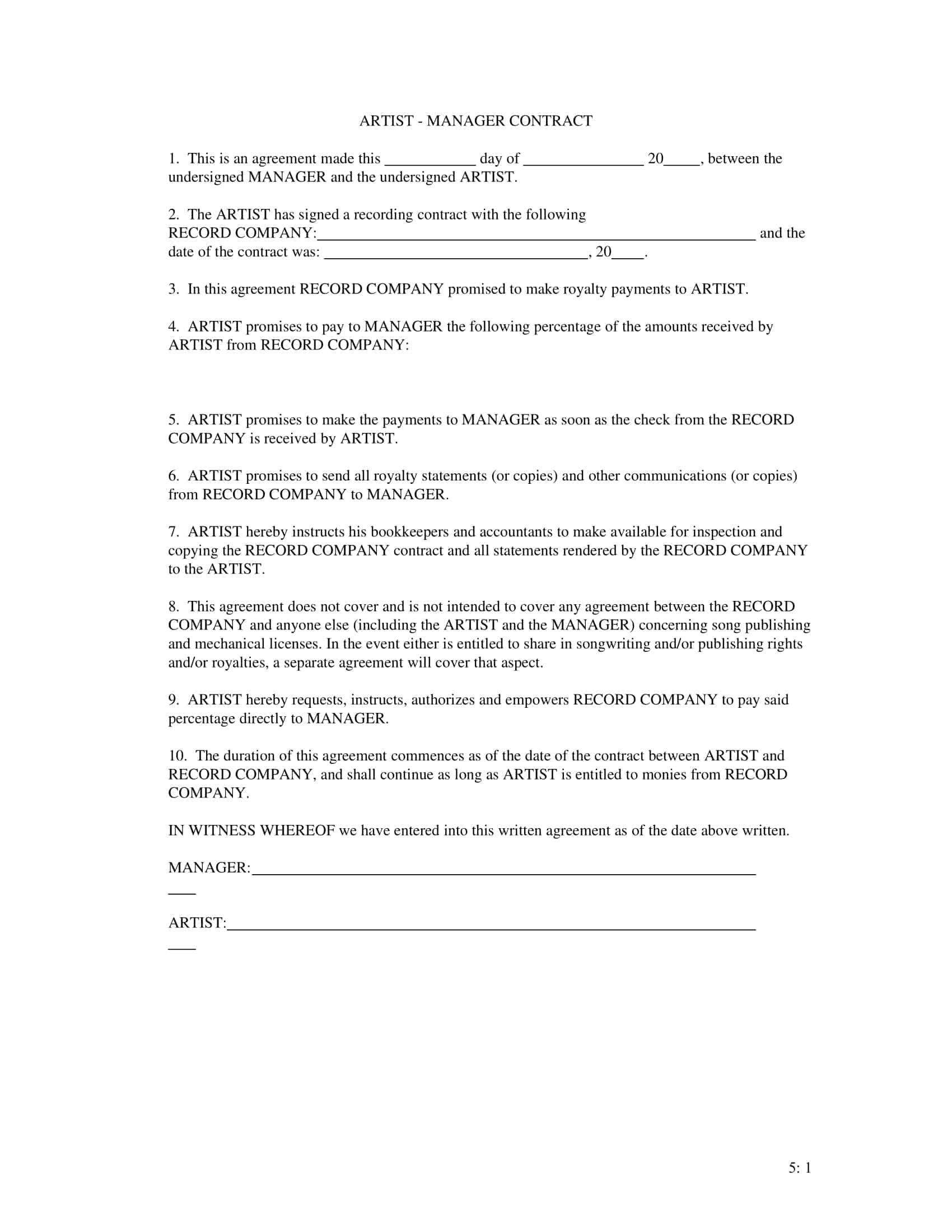
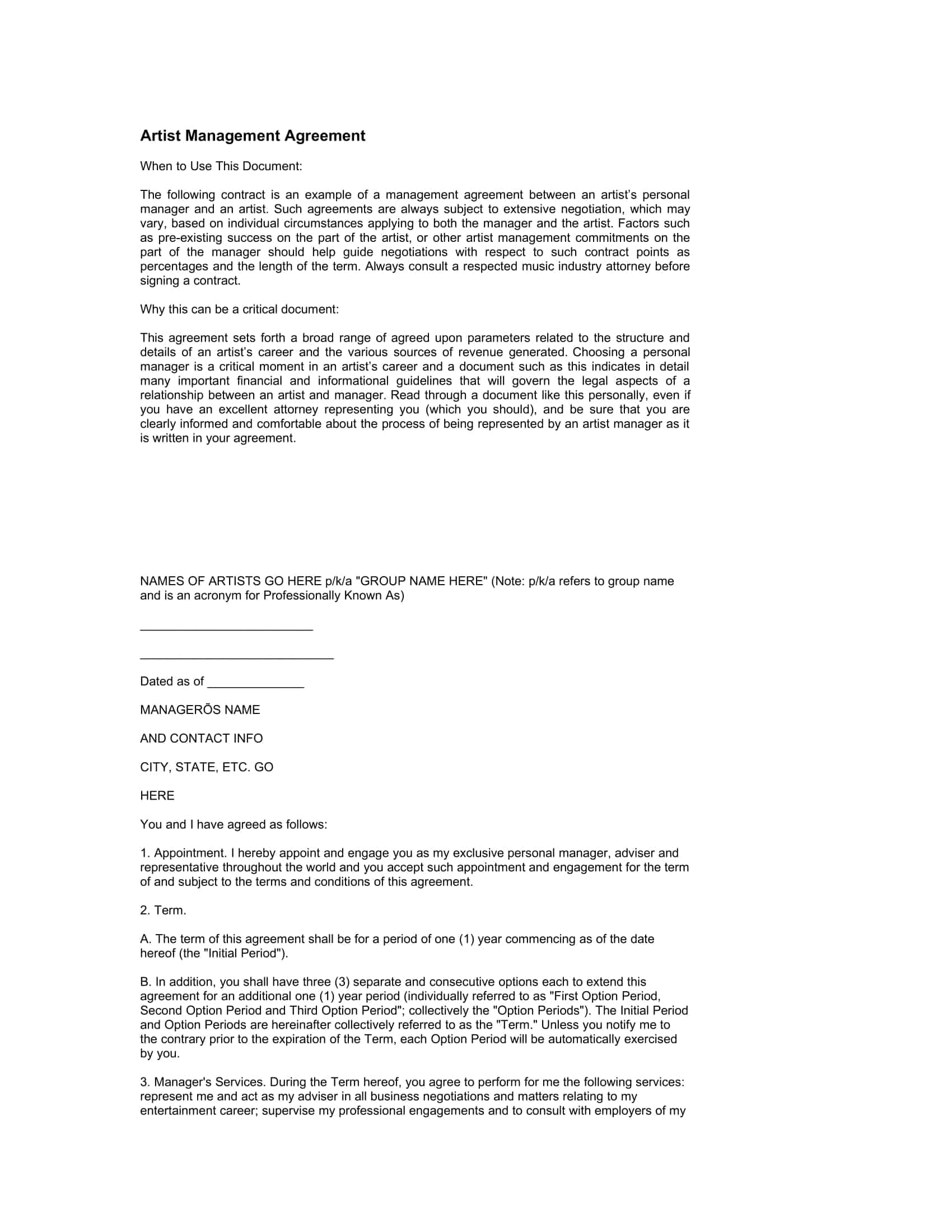
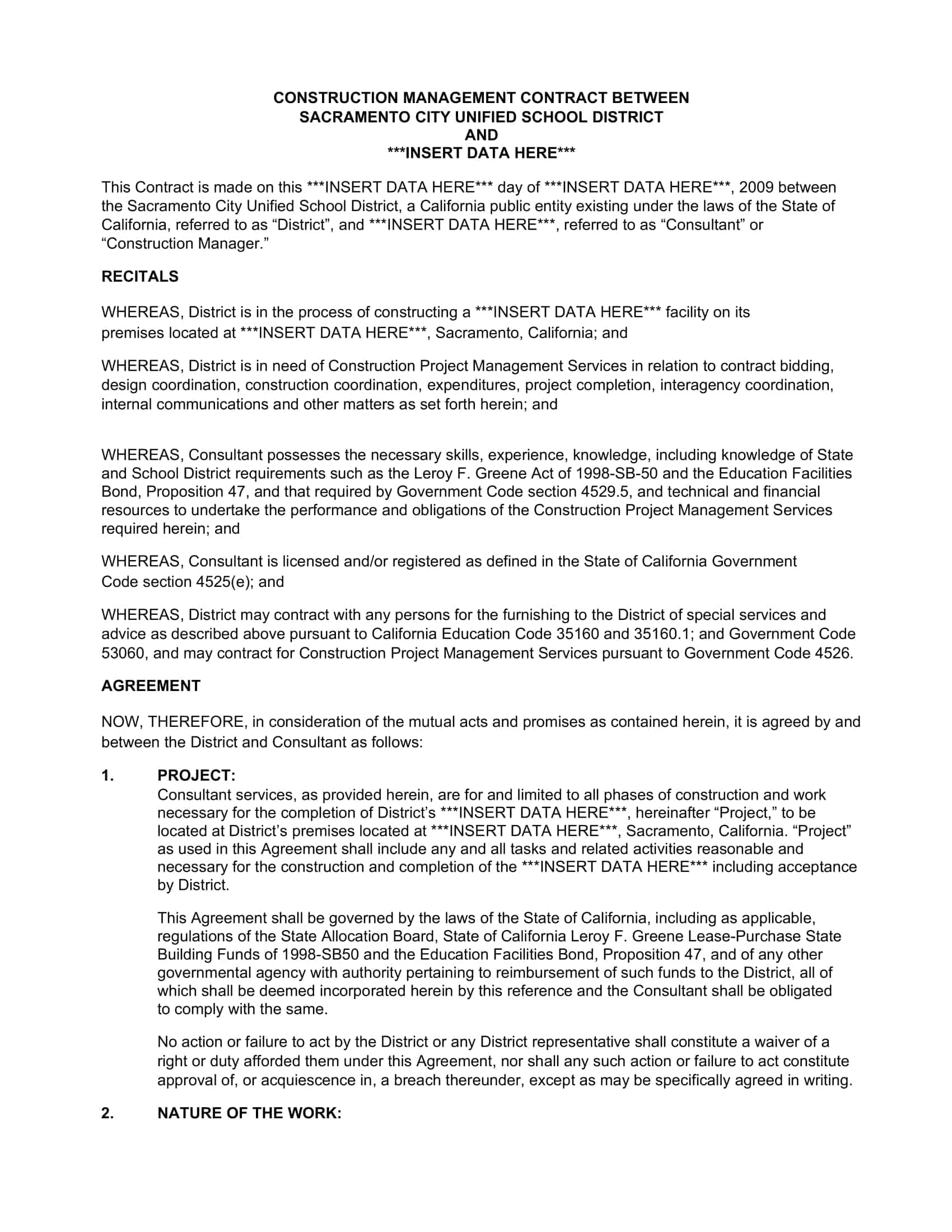
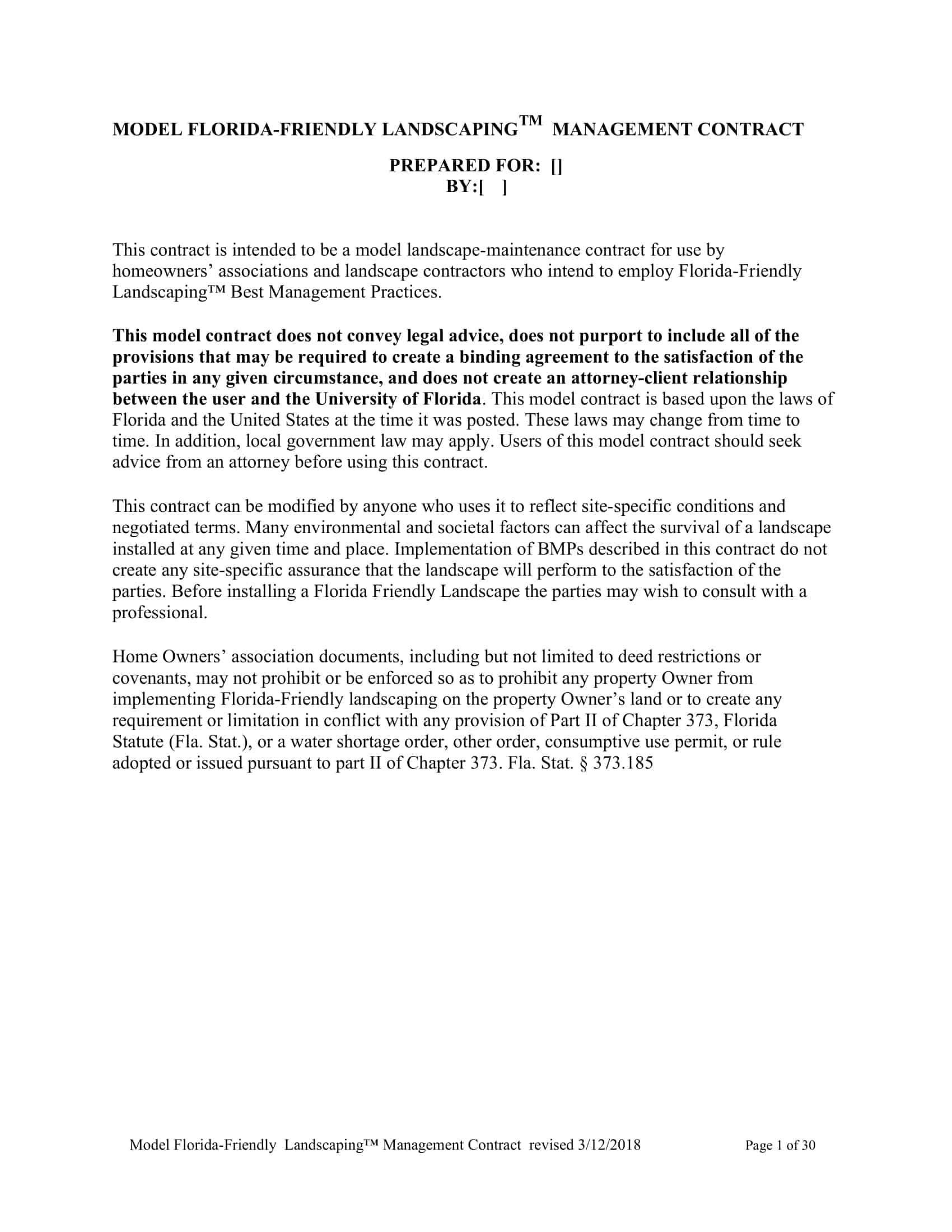
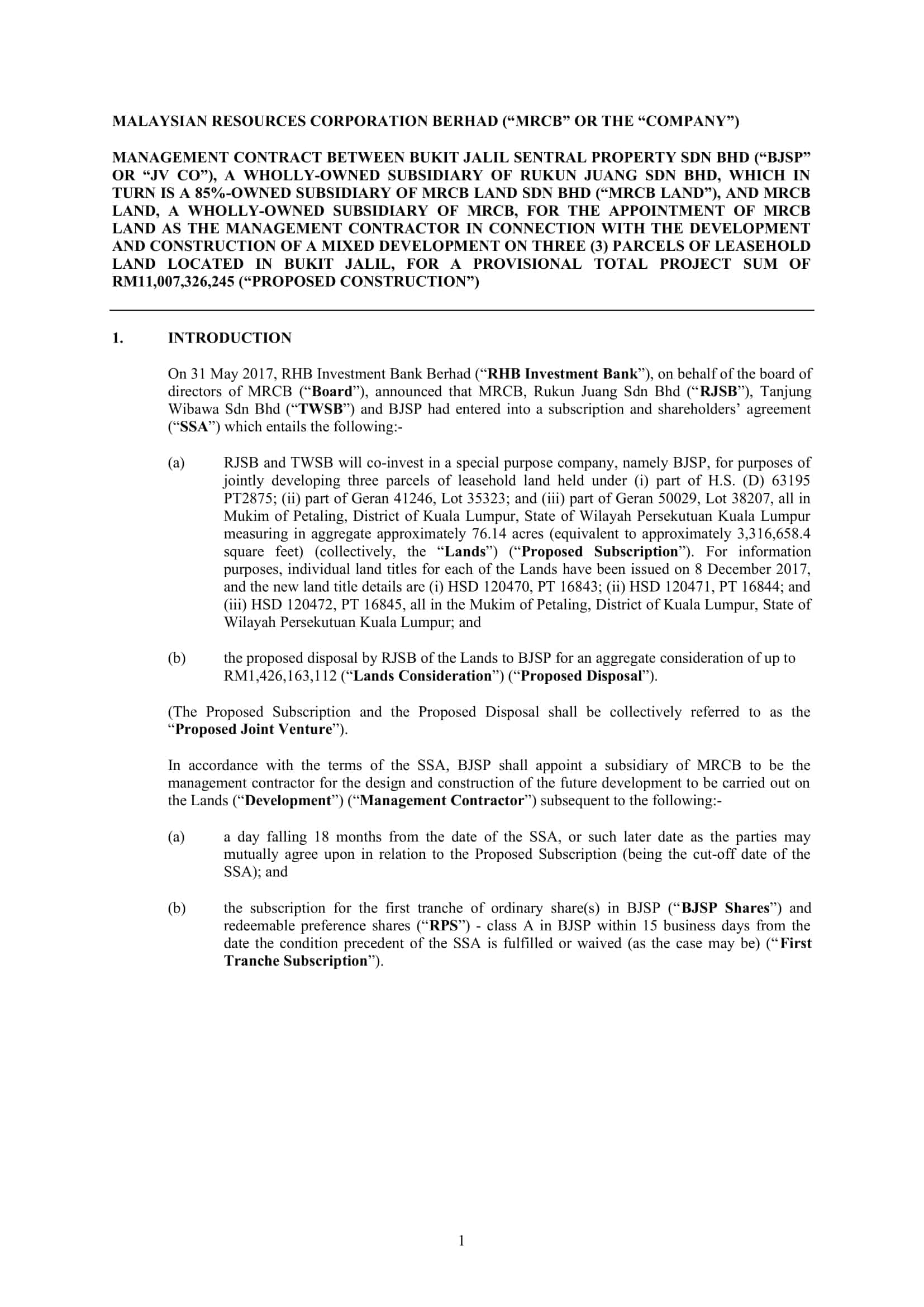
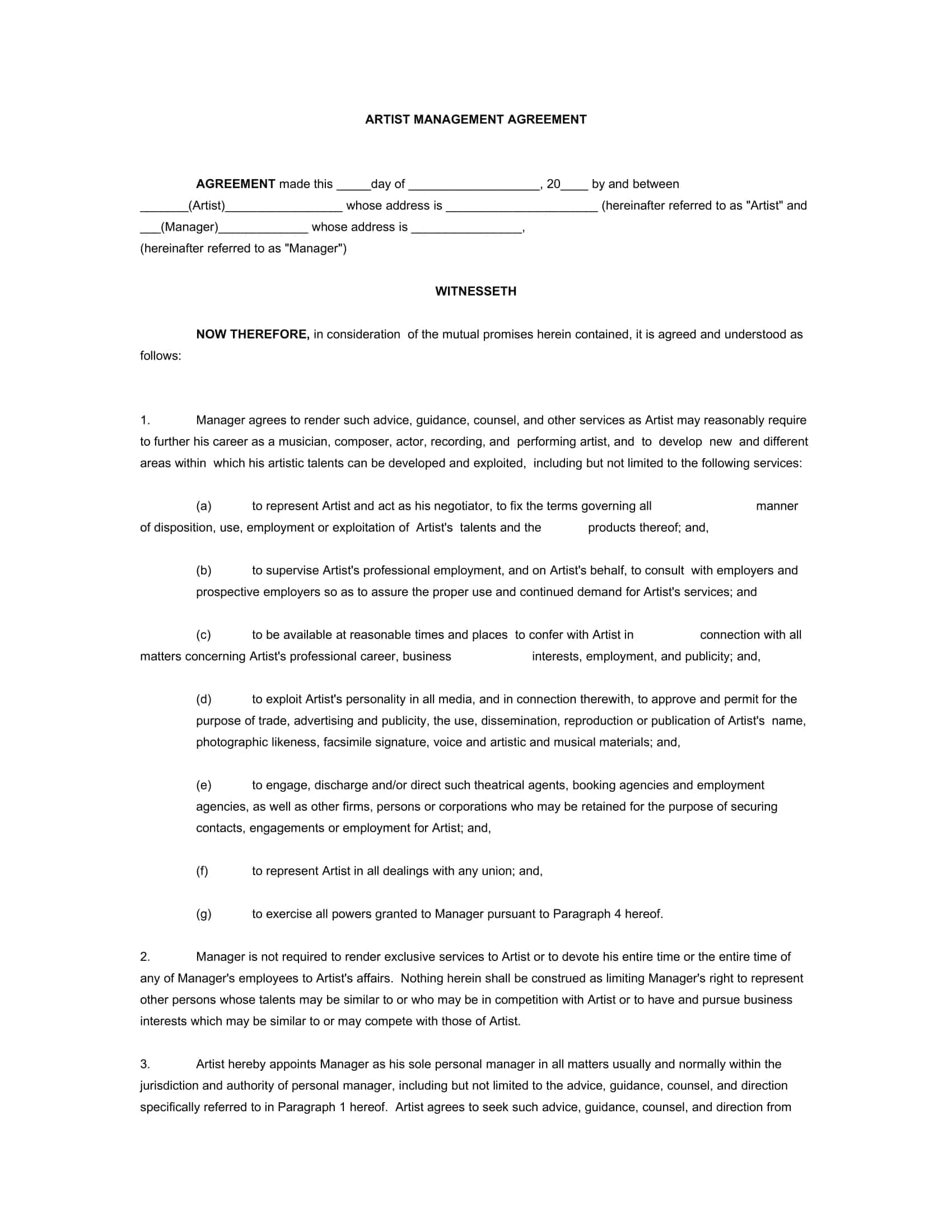





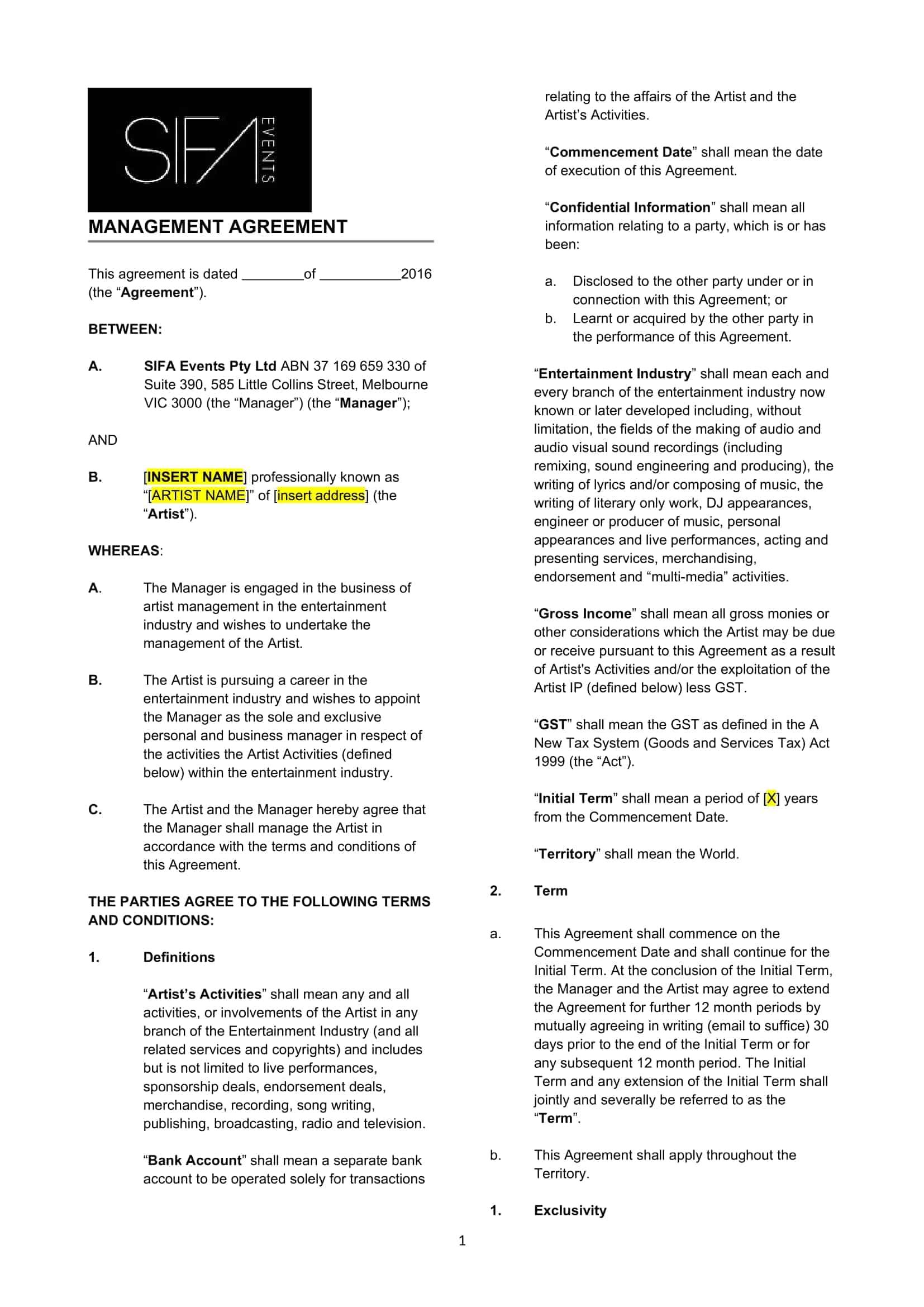


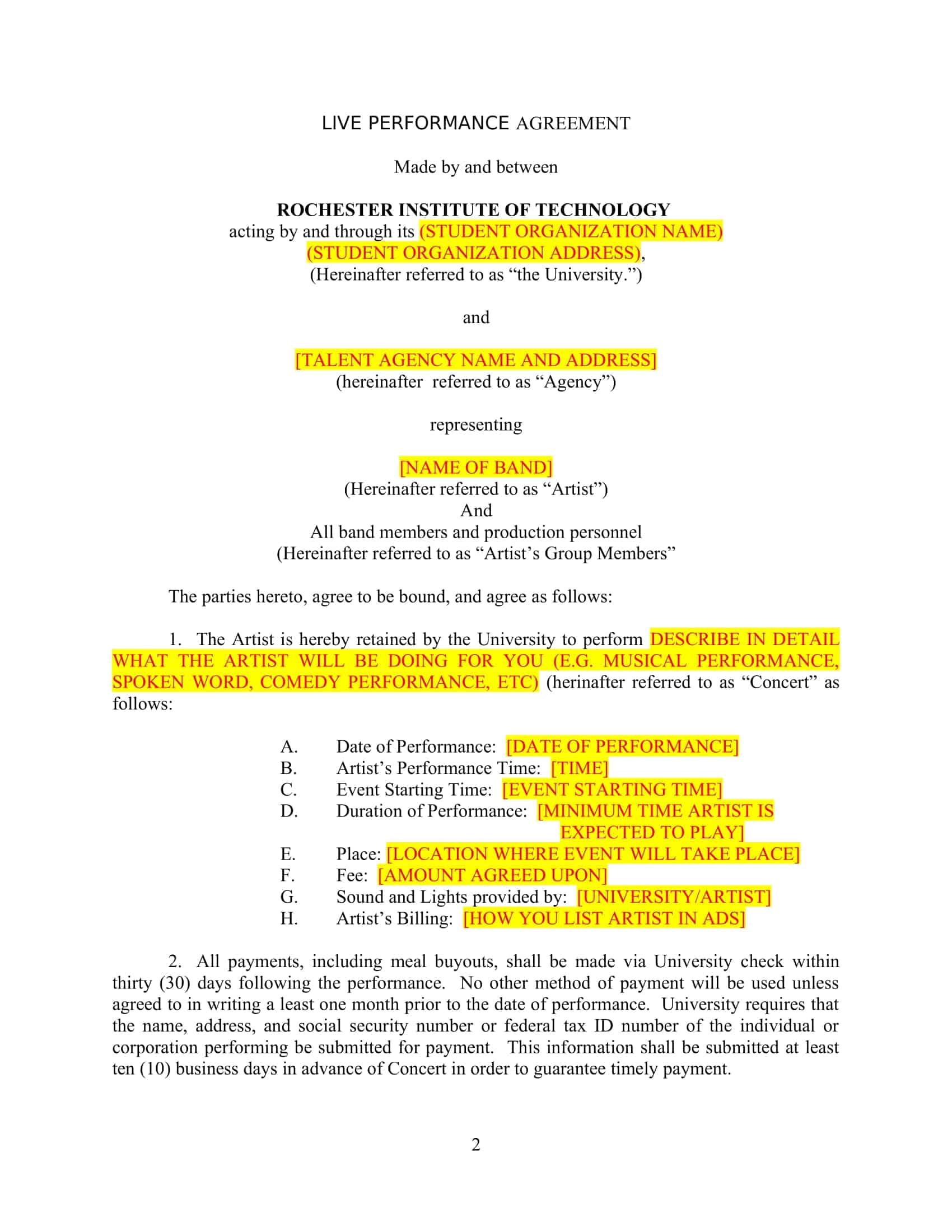
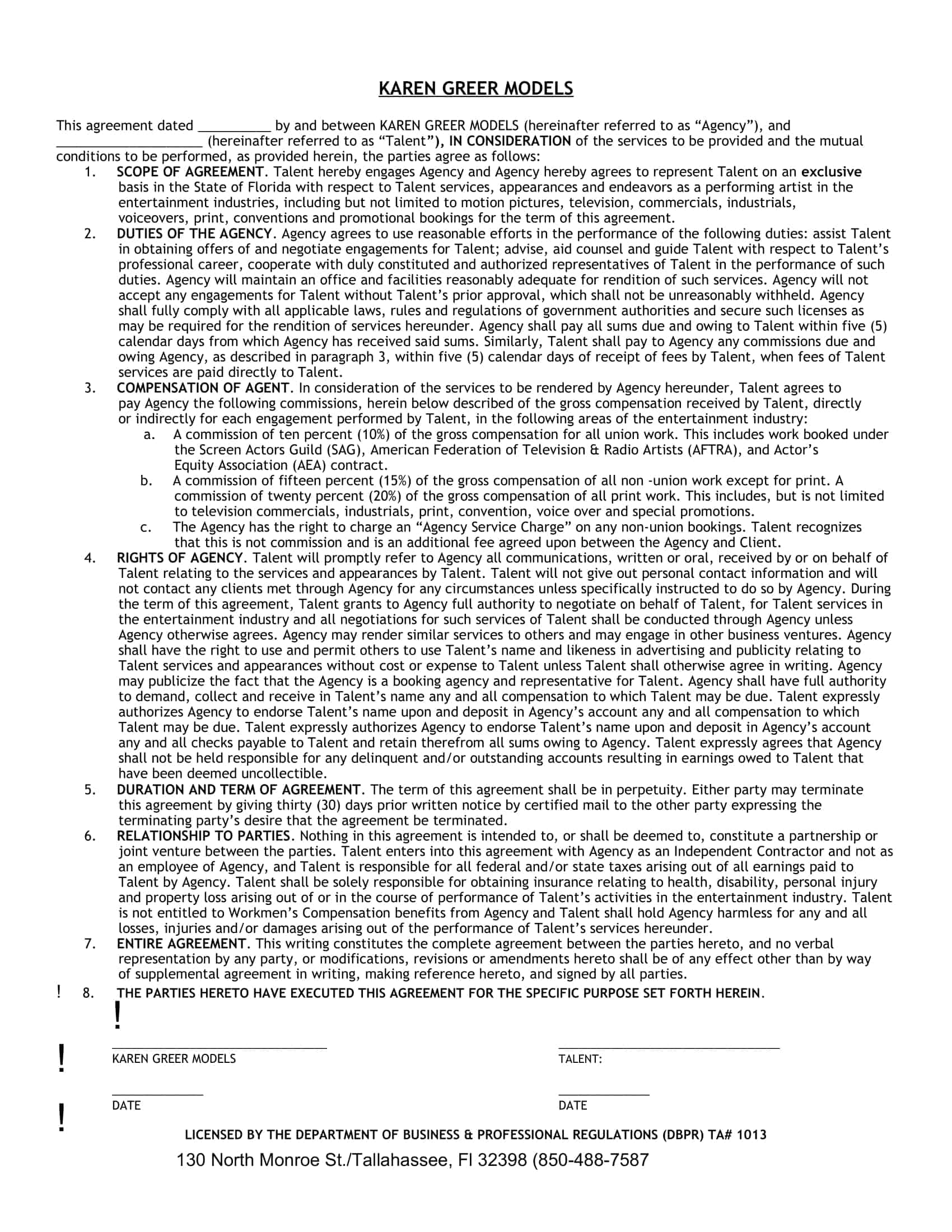
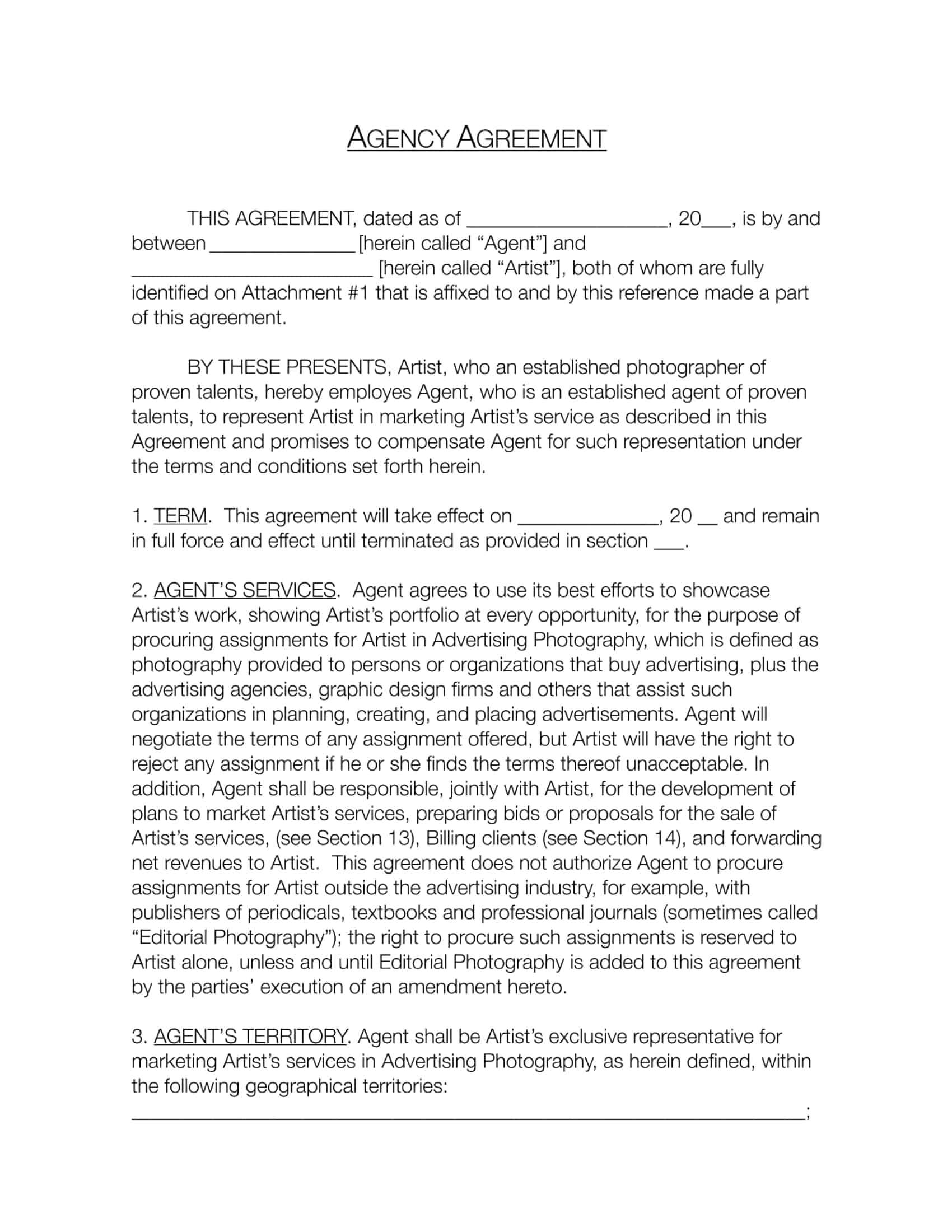
![Free Printable Roommate Agreement Templates [Word, PDF] 1 Roommate Agreement](https://www.typecalendar.com/wp-content/uploads/2023/06/Roommate-Agreement-150x150.jpg)
![Free Printable Credit Card Authorization Form Templates [PDF, Word, Excel] 2 Credit Card Authorization Form](https://www.typecalendar.com/wp-content/uploads/2023/06/Credit-Card-Authorization-Form-150x150.jpg)
![Free Printable Stock Ledger Templates [Excel,PDF, Word] 3 Stock Ledger](https://www.typecalendar.com/wp-content/uploads/2023/08/Stock-Ledger-150x150.jpg)
